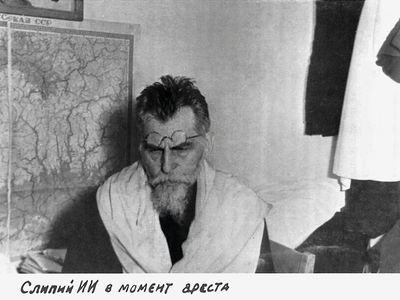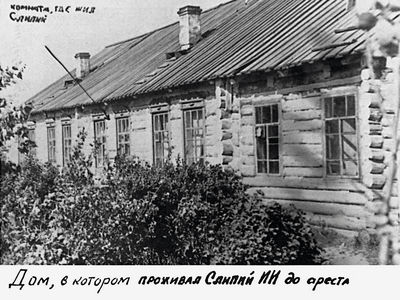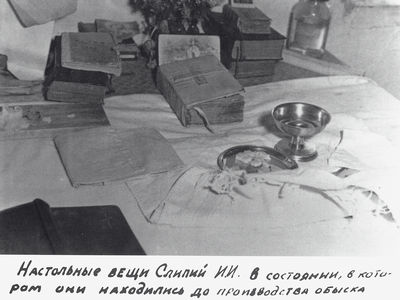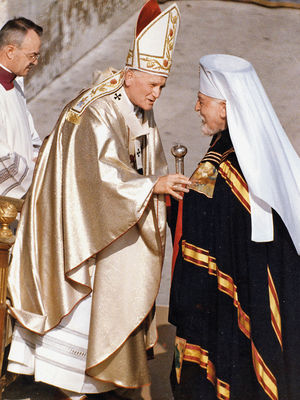8. Patriarch Yosyf Slipy 1892–1984
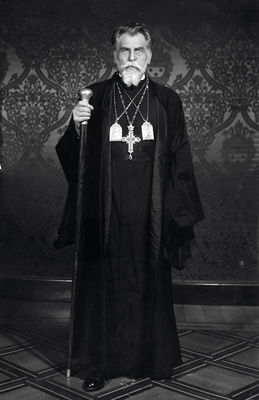 Patriarch Josyf Slipyj
Yosyf Slipy — one of the most colorful figures in the modern history of UGCC. Scientist, theologian, leader of academic institutions, primate of the Ukrainian Church — he was a multifaceted personality.
Patriarch Josyf Slipyj
Yosyf Slipy — one of the most colorful figures in the modern history of UGCC. Scientist, theologian, leader of academic institutions, primate of the Ukrainian Church — he was a multifaceted personality.
After finishing primary school and Ternopil high school, Yosyf Slipy went went to Lviv Theological Seminary in 1911. Metropolitan Andrey noticed the talented young seminarian, and at the end of his second year sent him to the University of Innsbruck (Austria), where the young Yosyf received a classical education and defended two academic theses in the field of dogmatic theology.
Slipy returned to Galicia and began scientific work. The career of the young intellectual, who was fluent in both classical (Greek and Latin) and modern (German, Polish, French, English, Italian) languages evolved quite rapidly. Although ordained in 1917, he almost wholly devoted himself to developing the scientific and educational institutions of the UGCC. After three years of a teaching tenure, Sheptytsky appointed Fr. Yosyf Slipy rector of the Lviv seminary. Later he headed the newly established Greek-Catholic Theological Academy. Fr. Slipy was also chairman of the Theological Research Society and editor-in-chief of the journal “Theology”.
Under the guidance of Fr. Slipy, the learning institutions turned into leading scientific centers not only for the clerics, but also for the entire Ukrainian community of Galicia. For long time, Sheptytsky placed special hopes for Theological Academy, which he tried to turn into a real Western university for Ukrainians. It was rector who was entrusted with the implementation of such ambitious and difficult, as of those times, plans.
The events of World War II brought about changes in the life of Yosyf Slipy. Metropolitan Andrey, who for several years was chained to a wheelchair, received from Pope Pius XII the blessing to ordain Rector Fr. Slipy to bishop with right of succession to the metropolitan seat. The episcopal ordination took place on December 22, 1939 in the private chapel of the metropolitan chambers in the presence of two bishops — Mykola Charnetsky and Nykyta Budka. After the seizure of the city by the Red Army and the death of Sheptytsky on November 1, 1944, the burden of administration of the Church in the new political environment fell onto the shoulders of the Bishop Slipy. However, on April 11, 1945, he was arrested for the first time.
During the investigation, which lasted more than a year, the Bolsheviks tried to persuade Metropolitan Slipy to embrace the Russian official church, but he flatly refused. Therefore, a military tribunal found him guilty of “treason against the homeland” under Articles 54–1 and 54–11 of the Criminal Code of the Ukrainian SSR and sentenced him to eight years of forced labor in Gulag camps.
Metropolitan Slipy spent 18 years in Soviet prisons, camps and in exile. Fellow prisoners mentioned the Metropolitan as a man who was willing to go all the way for his faith and beliefs. In the years 1953–1958, while in exile in a nursing home in Maklakovo, he wrote a multivolume history of the Universal Church in Ukraine. This work is an important key to understanding how Metropolitan Slipy was the identity of his Church.
He also wrote several pastoral letters to the faithful of the persecuted Church. Slipy was concerned about the fate of the Metropolitan Church, so in his poignant letters he spoke against the people who, under the pressure of circumstances and the government, moved to the Russian Orthodox Church, condemned the 1946 Lviv Council as a pseudo-synod with no canonical powers to revoke the Union of Brest and pronounce the rejoining with the Russian Orthodox Church, and called for the return into the bosom of the UGCC. He regularly wrote complaints and petitions of protest to the highest Soviet authorities, stressing that he was wrongly convicted, demanded his release from the Gulag, refuted libels against him and his Church circulated by the Soviet press, and sought restoration of the rights of the UGCC.
Metropolitan Slipy, like many other members of the Greek-Catholic clergy, to the extent possible continued his pastoral work, held services — and not only for Greek-Catholics but also for Orthodox and Protestant believers, and administered the holy sacraments of baptism and wedding. Despite his re-arrest in 1958, the Metropolitan did not neglect his pastoral duties and personally ordained several priests in the camps. After his release and before leaving for Rome, on February 4, 1963, he secretly ordained Fr. Velychkovsky as bishop in the Hotel Moscow, thus ensuring the continuity of the structures of the underground Church.
In Rome (1963–1984), Metropolitan and later Cardinal and Major Archbishop Slipy concentrated his efforts on protecting the oppressed Church. He used every public forum to emphasize the persecution of churches in the Soviet Union and advocated more radical action in protecting the rights of believers. His voice was a kind of an “appeal to the conscience” of church communities in the free world.
Consolidation of the religious life of Greek-Catholics in exile was another priority for the Head of the Church. In 1963 he created the Ukrainian Catholic University, which was to consolidate Ukrainian scientific forces abroad. Although the school failed to grow into a full-fledged university, it was the main meeting place for representatives of the Ukrainian Diaspora and an important publishing center.
Patriarch Yosyf Slipy also tried to strengthen the internal structure of the UGCC, launching an ambitious project of elevating it to the rank of patriarchate. This, in particular, was meant to ensure the necessary autonomous rights for the Church, which, in turn, would have promoted denominational unity.
Patriarch Slipy advocated the preservation of national identity and inter-confessional convergence. In his “Testament”, he called attention to the common heritage of the Kyivan Christian tradition as the basis for future understanding. This document also reflects a prophetic vision of his Church reviving after the decades of hardships in its native lands. He died only a few years before the legalization of the UGCC in Ukraine.
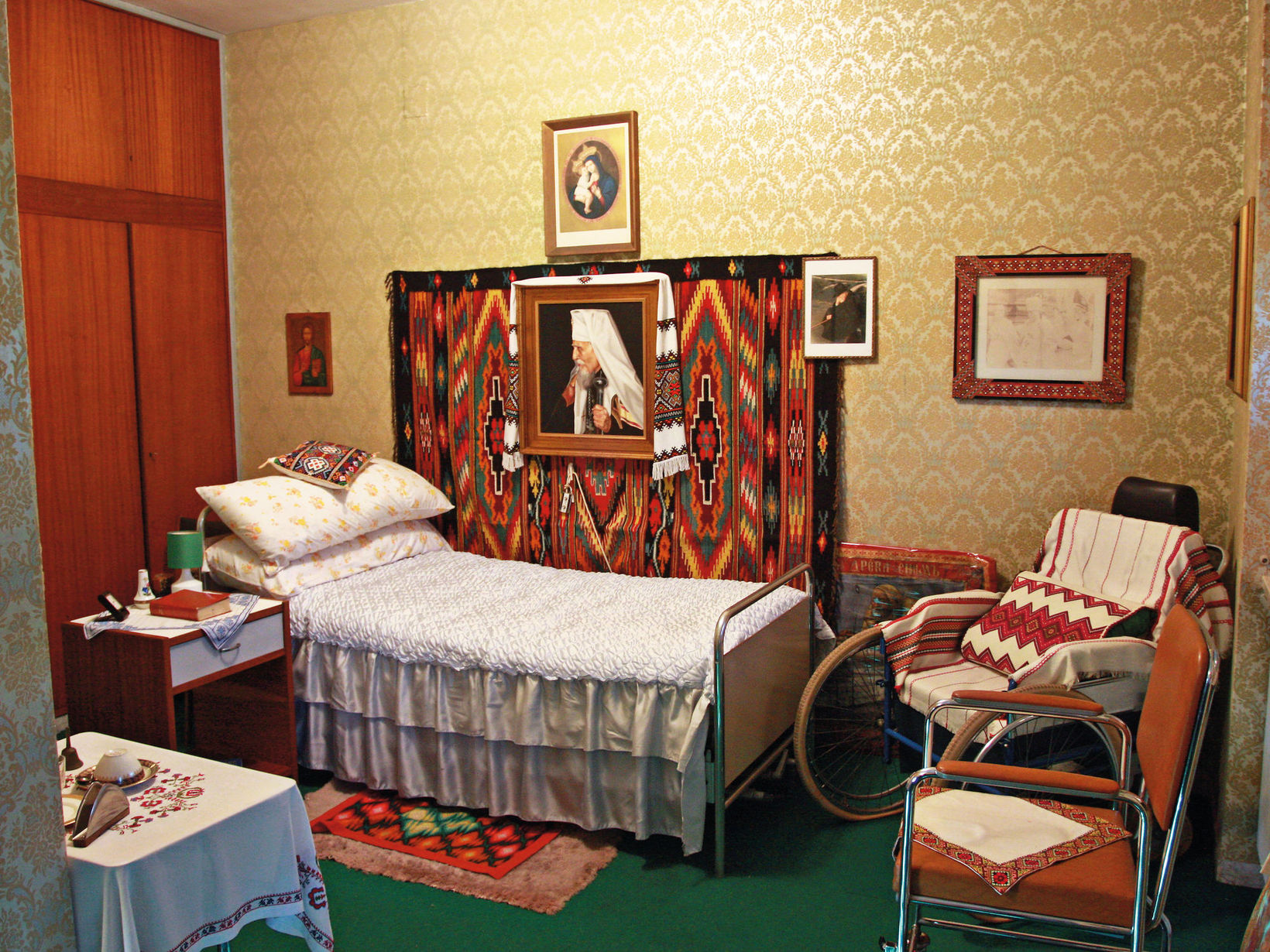 The Room of Patriarch Josyf Slipyj in Rome
The Room of Patriarch Josyf Slipyj in Rome
In September 1992, Yosyf Slipy was reburied in accordance with his “Testament” in the crypt of St. George’s Cathedral in Lviv next to his predecessor Metropolitan Andrey Sheptytsky.
